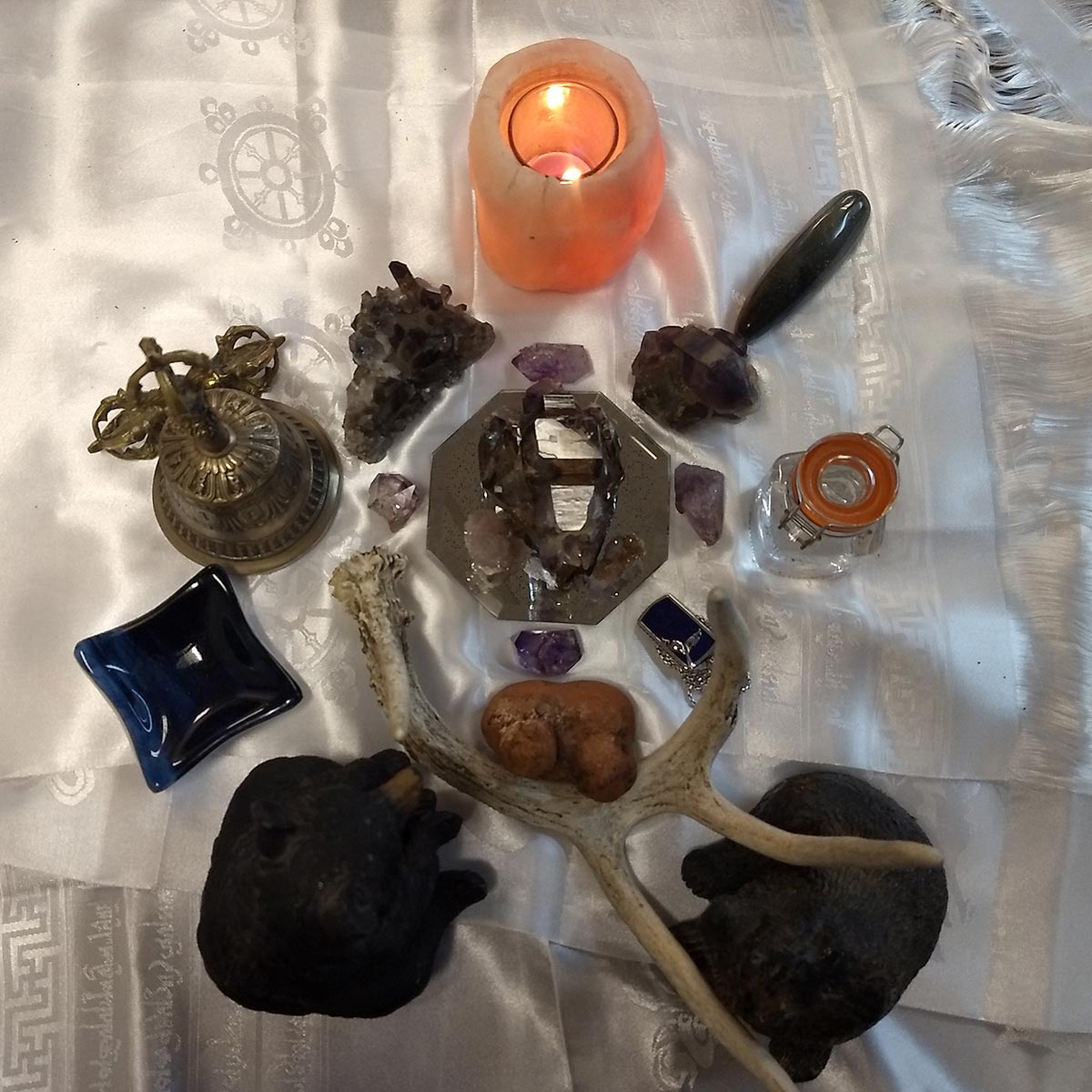When we embark on the journey of relationships, we often overlook the fact that, much like everything else in life, relationships too change. They evolve, shift and transform, and in many ways, this is normal, healthy even. Allow me to share some insights on how relationships fundamentally change over time and how you can recognize these shifts.
Contents
Firstly, it’s important to understand that change is not necessarily a signal for doom. Relationships are like living organisms (they grow, adapt, and sometimes, they get sick). They are dynamic and ever-changing, reflecting the personal growth and shifts in each partner. So don’t be alarmed when your relationship shifts gears. It’s not always a sign of trouble. Sometimes, it’s simply a sign of growth and development.
The Signs That Your Relationship May Be Coming to an End
It is often said that change is the only constant in life and this is as true in our personal relationships as it is in any other aspect of our existence. Sometimes, these changes may be the whispers of a forthcoming storm – the subtle signs that a relationship might be on its last legs. It’s essential, however, to interpret these signs with care, as they may not necessarily herald the end; instead, they could signal a need for change, growth, and mutual understanding. Here are some of the key indicators that your relationship might be approaching its denouement, based on my observations and experiences.
1. Communication Breakdown
When communication becomes more of a chore than a pleasure, it can be a significant warning sign. You may find that you are no longer looking forward to conversing with your partner. Maybe your exchanges are growing increasingly terse, superficial, or even hostile. The content of your conversations could shift from shared dreams, hopes, and experiences, to mundane logistics or constant bickering and disagreements. The greatest problems occur when you rarely see things eye to eye. You often have the feeling that not only are you not on the same page, but not even the same chapter.
2. A Shift in Priorities
It’s perfectly normal for priorities to shift as individuals grow and evolve. However, if you find that your partner no longer prioritizes the relationship in the way they once did, it might be cause for concern. This could manifest as spending less time together, a lack of interest in shared activities, or a refusal to make future plans. Sometimes this is simply temporal due to changes in job and career, where an increased focus in that area is required. It’s not unhealthy to have differing interests, but if you have a strong dislike for what your parter is doing, that’s a warning sign.
3. The Bedroom Becomes a Battleground
Intimacy is an essential part of any romantic relationship, and a noticeable change in this area can often be a red flag. If physical affection diminishes or disappears, or if you find yourself regularly fighting or feeling uncomfortable in the bedroom, it might be a sign that the relationship is in trouble. It’s not uncommon that sexual desire diminishes over time. Sometimes intimacy isn’t even physical but rather an emotional feeling of support and connection with your partner. If you lose both, it can cause a significant feeling of separation which is opposite what supports a strong relationship bond.
Intimacy can be a complex subject. If you’re interested in exploring the different types of intimacy in relationships, read “Unusual Intimate Relationships: One Size Does Not Fit All.”
4. Drifting Apart
Feeling like you’re drifting apart from your partner is another common sign that a relationship may be nearing its end. This could be an emotional distance – not feeling understood, supported, or loved – or a physical one, with each party leading increasingly separate lives.
It’s important to remember that these signs don’t necessarily mean the end is nigh. They could serve as a wake-up call that some aspect of the relationship needs to be addressed, and could potentially be fixed with open communication, empathy, and mutual effort. However, if these issues persist despite sincere attempts at resolution, it might be time to consider whether the relationship has run its course.
Remember, it’s not about finding fault, but about understanding your needs and those of your partner. In some cases, the end of a relationship might be the healthiest and most respectful choice for both parties.
Next, we will explore how to navigate the challenging process of ending a relationship in the most respectful and least painful way possible.
Assessing the State of Your Relationship: Reasons to Repair or Move On
As we navigate the labyrinth of interpersonal relationships, it is of the utmost importance to constantly assess the state of our relationships. In a universe where change is the only constant, our relationships, too, are subjected to continual evolution. To better comprehend the status of your relationship, it’s essential to discern whether the mounting issues are a call for repair or a signal to part ways and move on.
Every relationship has its ups and downs, its bouts of harmony and discord (and that’s perfectly normal). It is how we deal with these fluctuations that determine the longevity and health of our relationships. In this regard, communication forms the backbone of any relationship. An open, frank dialogue can unravel issues that may have been festering beneath the surface. However, when communication breaks down, it often serves as a red flag.
Reasons to Repair
- Shared History and Experience: With time, couples build a shared history and have profound experiences together. The idea of losing this can be heart-wrenching. If you still value this shared history and see it as a source of strength, it may be time to work on your relationship.
- Respect and Equality: A relationship based on mutual respect and equality has a strong foundation. If you and your partner respect each other and treat each other as equals, this is a sign that your relationship may be worth fighting for.
- Love and Affection: Love is the heart of any relationship. If love and affection still exist between you and your partner, then it might be worth addressing the issues in your relationship.
- Effective Communication: If both partners can effectively communicate their feelings and concerns, then it’s a good sign. Effective communication is often the key to solving problems and misunderstandings.
- Common Goals: Many relationships include mutual business ventures, children, animals, command of property and assets, and social and political endeavors. Any of these may be stronger because of the bond of the relationship.
If repairing your relationship feels like the way to go, read “Reviving Your Relationship With Love and Trust.”
Reasons to Move On
- Constant Conflict: If your relationship is characterized by constant conflict and discord that seems unresolvable, it may be time to consider parting ways.
- Lack of Respect: A relationship without respect is like a house without a foundation – it’s bound to crumble. If respect is lacking in your relationship, it may be an indication to move on.
- Emotional or Physical Abuse: No one should tolerate any form of abuse in a relationship. If you’re experiencing emotional or physical abuse, it is crucial to seek help and leave the relationship as soon as possible.
- Unhappiness: If your relationship consistently brings you more pain than joy, or if you find yourself unhappy more often than not, it may be a sign that you should move on.
- Negative Affects on Others: Our relationships don’t live in a vacuum. If your friends and family are telling you that they don’t want to be around you because of the tension between you, there’s a good chance that others are seeing what you don’t. It may be time to take a listen.
The choice between repairing a relationship and moving on is never an easy one. Weighing these factors can help you make a more informed decision about what is best for you and your partner. In the end, remember – every relationship requires work and commitment, but it should also bring you happiness and emotional fulfillment.
Common Relationship Issues and How to Address Them
In any relationship, there are bound to be problems. These problems, often referred to as relationship issues, vary greatly from couple to couple. However, there are some common themes that seem to emerge in many different relationships. These issues, while often complex and multifaceted, can generally be broken down into three main categories: communication issues, compatibility issues, and trust issues.
Communication issues
The importance of effective communication in a relationship cannot be overstated. When communication breaks down, misunderstandings abound, feelings get hurt, and resentments build. Common communication issues include not listening to each other, not expressing thoughts and feelings openly, and constant arguing.
The solution to communication issues often lies in improving listening skills, expressing thoughts and feelings in a non-accusatory manner, and finding constructive ways to resolve disagreements, assessing both emotional and logical components of an argument. Regularly taking the time to check in with each other about feelings and experiences also helps to foster open and honest communication. This requires scheduling and prioritizing time to reflect on where each is at with regard to the elements that are the most contentious in the relationship, as well as the things that are the most supportive and joyous.
Communication problems are cited as the most common reason for divorce.
Compatibility issues
While opposites often attract, too many differences in key areas can lead to compatibility issues in a relationship. These can be differences in values, life goals, or even daily habits. Having differing views on important issues such as finances, parenting, or where to live can also cause compatibility problems.
When faced with compatibility issues, it may be helpful to have open and honest discussions about each other’s needs and expectations. It’s important to remember that compromise is key – no two people are exactly alike, and it’s unrealistic to expect your partner to change completely to accommodate you (or vice versa).
Trust issues
Trust is the foundation of any relationship. When trust is broken, it can be very difficult to rebuild. Trust issues can arise from past hurts, infidelity, or a pattern of dishonest behavior. It’s important to note that trust issues can also stem from personal insecurities or past experiences, not just from actions within the relationship.
Addressing trust issues often requires patience, consistency, and open communication. It may also require professional help, such as therapy or counseling. Recognizing and acknowledging the issue is the first step towards rebuilding trust.
It’s important to remember not to treat trust as black and white, off or on. Trust is negotiable and changeable, and knowing where you are in your level of trust in what areas with your partner is an important element in negotiation and identifying areas of possible growth for both of you.
It’s important to know that according to sfig.com, Infidelity is a factor in about 20-40% of divorces. There may be reasons that this is occurring that could be dealt with by having a broader understanding of how different people have different needs from a relationship. Consider reading “Unusual Intimate Relationships: One Size Does Not Fit All” for a more complete understanding of the issues and seeking communication as a resolution before ending things.
Steps to Repair a Failing Relationship
Rebuilding a relationship that seems to be on the brink of collapse may seem daunting, but don’t lose heart. Here’s a list of steps you can take to repair a failing relationship:
- Open Communication: Hold regular conversations about your feelings, expectations, and concerns. Honesty paves the way for understanding and resolution.
- List your Pain Points: Identify the issues that are causing distress in your relationship. Acceptance of problems is the first step towards their resolution.
- Empathize with your Partner: Try to understand your partner’s viewpoint. Empathy can help bridge the gap of misunderstanding.
- Rebuild Trust: Trust is a key component in any relationship. Be truthful, reliable, and open to regain your partner’s trust.
- Seek Professional Help: If things are too tangled, don’t hesitate to seek guidance from a relationship counselor. Sometimes, a third party perspective can bring clarity.
Remember, a relationship is a work in progress. It requires effort, compromise, and a lot of understanding. But the reward of a strong, healthy relationship is worth every ounce of the effort invested.
When One Partner Changes: Navigating Differences and Transitions
As we take this journey through life, change is one constant that we can all unequivocally count on. And in the realm of relationships, it’s no different. Significant changes in one partner’s life, beliefs, or behavior can lead to seismic shifts in the dynamics of a relationship. I’ve seen this happen time and again, often to the surprise of the other partner. Now, it’s important to remember that change, in and of itself, is not necessarily a bad thing. In fact, growth and evolution are crucial components of a healthy relationship including with one’s own self. However, when these changes lead to differences or transitions that become hard to navigate, they can signal the beginning of the end for a relationship.
The Process of Change
In my experience, the process of change in a partner often transpires subtly and gradually. It could be a shift in political or religious beliefs, a change in career path, or even drastic lifestyle alterations (like deciding to go vegan or take up marathon running). These changes might initially seem innocuous, or even exciting. Yet, over time, they can create a divide as one partner evolves in a direction that the other partner doesn’t necessarily resonate with.
Assessing the Impact
So, how do we determine if these changes are merely growing pains or signs of an impending relationship breakup? The key here is assessing the impact of these changes on your mutual compatibility and shared goals. If these changes are causing frequent conflicts, leading to feelings of resentment or disconnection, or fundamentally altering your shared vision of the future, it may be time to reconsider the viability of the relationship.
Navigating Differences and Transitions
Navigating differences and transitions can be a challenging process. For one, it requires open communication and understanding. You need to be able to discuss these changes, understand your partner’s perspective, and express your own feelings and concerns. If these dialogues are met with defensiveness or dismissal, it could signal a deeper issue. Secondly, you’ll need patience. Changes, and the resultant differences, don’t resolve overnight. It’s important to give each other the time and space to process these transitions.
When It’s Time to Let Go
But when is it time to let go? It’s a question that haunts many of those in tumultuous relationships. In my belief, if after sincere efforts to communicate, understand, and adapt, the differences remain insurmountable, it may be time to consider parting ways. If you find your self-esteem eroding, your happiness dwindling, or your dreams being consistently compromised, then the relationship may have run its course. Remember, sometimes, the most loving thing you can do for yourself and your partner is to let go when the relationship no longer serves you both.
When Your Partner Is Unwilling or Unable to Change: Acceptance vs. Moving On
Change is inevitable, and it’s certainly true in the context of relationships. There may come a point where you notice that your partner is either unwilling or unable to change certain behaviors or attitudes that are causing friction within your relationship. It’s at this juncture that you face a decision: accept them as they are, or decide that it’s time to move on.
The decision process isn’t easy, and it’s crucial to consider all aspects of your relationship before making a choice. This includes analyzing the effects of your partner’s unwillingness or inability to change, understanding your own emotional responses, and considering the potential consequences of either staying or leaving.
When your partner is unwilling to change, it might be indicative of a deeper issue. It could mean a lack of respect for your feelings or an inability to compromise, both of which are essential elements in a healthy relationship. It’s important to note that people aren’t perfect and everyone has their flaws. However, when these flaws become detrimental to the relationship and your partner refuses to address or change them, it may be time to seriously reconsider your relationship.
“Change is hard at first, messy in the middle and gorgeous at the end.”
~Robin Sharma
On the other hand, when your partner is unable to change, that might speak to an issue that runs deeper than mere stubbornness or unwillingness. In such cases, professional help may be required for them to overcome their issues. If they’re unable or unwilling to seek help or if their issues continue to strain your relationship, it may be healthier for both of you to part ways.
The Ultimate Choice
Ultimately, choosing between acceptance and moving on is a deeply personal decision. It involves a profound understanding of your own needs, your partner’s needs, and what you both want out of the relationship. Here are some considerations that may guide you:
- Compatibility: Does your partner’s unchanging behavior or attitude clash with your core values or make it difficult for you to be yourself?
- Emotional health: Is the situation causing you undue stress, anxiety, or impacting your self-esteem negatively?
- Long-term impact: Can you envisage a future with your partner if these behaviors or attitudes persist?
At the end of the day, you deserve a relationship that brings you joy, respect, and fulfillment. If you find that your relationship is causing you more pain than happiness, it might be a signal that things have run their course. As difficult as it may be, moving on could be the best decision for your long-term happiness and mental health.
Remember, it’s okay to put yourself first. You have the right to prioritize your happiness, and sometimes, that means making tough decisions. Understand that the path ahead might be difficult, but ultimately, you’re choosing to invest in your own wellbeing. And that’s something to be proud of.
Making the Decision to End a Relationship: Coping with Heartbreak and Moving On
In the often emotionally turbulent world of relationships, the decision to end one can be a daunting task. It’s not just a simple matter of saying goodbye. It’s a complex interplay of psychological, emotional, and often physical adjustments that are required. As someone who has navigated these choppy waters, I can tell you that there are no easy answers here. However, there are ways to make this process less painful and more manageable. I’d like to share those with you.
The Mental and Emotional Aspects
Recognizing the psychological and emotional signs that a relationship is coming to an end is the first step in this process. It’s often the subtle changes in behavior, the gradual distancing, the emotional unavailability, or the persistent feeling of dissatisfaction that can indicate a shift. Often this is not a positive shift in the relationship dynamic. You may find yourself constantly arguing over seemingly trivial matters, feeling neglected, or sensing a general lack of warmth and affection.
But be aware that relationships are not perfect, and it’s natural to go through phases of conflict and disconnection. The key here is to differentiate between a temporary rough patch and a fundamental problem that’s causing distress and unhappiness. Rough patches can often be remedied with open communication and effort.
Making the Decision
Once you’ve acknowledged these signs, the next step is to decide whether the relationship is worth saving or not. This is not a decision to be taken lightly. It requires a great deal of introspection and a careful weighing of the pros and cons. Ask yourself: Can the issues be resolved? Are both parties willing to put in the work? Is there more pain than happiness? If the answers to these questions lean towards the negative, it might be time to consider ending the relationship.
Consider using a simple table to help organize your thoughts:
| Pros | Cons |
|---|---|
| Shared history and memories | Emotional or physical abuse |
| Respect and equality | Unhappiness |
| Love and affection | Feeling neglected |
| Effective communication | Constant arguments |
| Willingness to change | Emotional unavailability |
| Common goals | Feelings of separation |
Weighing Your Options
You could assign a number of 1-100 to each of the above and tally up the Pros and Cons. This is a fairly rudimentary task but one that may be more revealing than you think. The totals may indicate something obvious, but the weight that you assign to each should be done in two ways:
- Be sure to assign the level of importance that you ascribe to each item in the Pros column. For instance, on a scale of 1-100, give the level of Love and Affection you need from a relationship; 1=none, 100=total. Lack of respect may be a big contender in what you can or can’t tolerate in a relationship. Again, on a scale of 1-100, give a weight to each item in the Cons column.
- Next, assign the current values as they exist in your relationship now.
When assessing the Pros column, you’re looking for big differences between what you seek and what you’re receiving. The greater the difference, the greater the divide between you and your partner. In the Cons column, you’re looking for small differences. The smaller the differences, the more trouble the relationship is in.
About 75% of divorced people remarry within 5 years.
Coping and Moving On
Should you decide to end the relationship, expect to feel a range of emotions, from relief to regret, from sadness to anger. It’s a process of grieving, and it’s important to allow yourself to feel these emotions fully. Practice self-care, lean on your support network, and seek professional help if necessary.
And remember, while ending a relationship can be painful, it also opens up the possibility of finding a healthier, happier relationship in the future. As I often tell those who seek my counsel, there’s always light at the end of the tunnel, no matter how dark it may seem in the moment.
Having a Support System
Make sure you have a support system in place. It doesn’t mean that you’re going to dump all your grief and woe onto your friends, but know who you can call when you need somewhere to disappear for a while, or someone to give adequate advise when you’re particularly grievous or angry.
Since emotions are not rational, you can’t always expect to make rational decisions at times when they’re most needed. You need someone you can call to ask they’re opinion of how to proceed. Keep this conversation short and concise. You don’t want to burn any bridges. Know exactly what the question is that you need an answer to, and know the outcome you’d like to have.
If you don’t have friends or family to help guide you through these situations, you may consider hiring a coach to be on call for you. There are all kinds of coaching arrangements you can create with different coaches, so seek someone who’s flexible enough have a contract with you that will serve as your go-to person.
Only about 10% of couples seek counseling before deciding to divorce.
Taking Care of Yourself and Learning from Your Relationship Experience
In the grand tapestry of life, relationships form a major part of our human experience. They are the subplots that give color to our stories, the threads that bind our existence. However, all things have a lifecycle (including relationships), and sometimes, it becomes evident that a relationship is approaching its end. It’s a challenging realization to come to terms with, but there’s a silver lining. It’s an opportunity for growth, for learning, and for self-reflection.
As we navigate the murky waters of a failing relationship, it’s crucial to remember the importance of self-care. We often lose ourselves in the process of trying to save a relationship and forget that we are the protagonists in our stories. It’s important to ensure that your physical, emotional, and mental well-being are not compromised in the process. There’s no shame in walking away from something that causes more harm than good. After all, we cannot pour from an empty cup.
It is also beneficial to view the end of a relationship as a chance for learning. Reflect on the things that did not work out and use the insights gained to improve future relationships. Remember, every relationship teaches us something about ourselves, about our preferences, and about the dynamics we are comfortable with. It is an opportunity to understand who you are better and what you want in a future partner.
“Failing to learn from our past relationships is akin to reading a book and not understanding the story. Every chapter, every page, every word plays a part in shaping the narrative.”
Finally, it’s necessary to acknowledge and understand the pain associated with the end of a relationship. It’s okay to grieve for the loss of a relationship. Accepting the pain is the first step towards healing. It’s important to remember that it’s temporary, and it does get better with time. Time truly is the best healer.
In Conclusion
Remember that you are the author of your story. It’s okay to close a chapter if it doesn’t align with the narrative you want for your life. You can prioritize your well-being. It’s okay to learn from your past and use it as a stepping stone towards a better future. Life is a journey of learning and growth, and relationships are an integral part of it.












